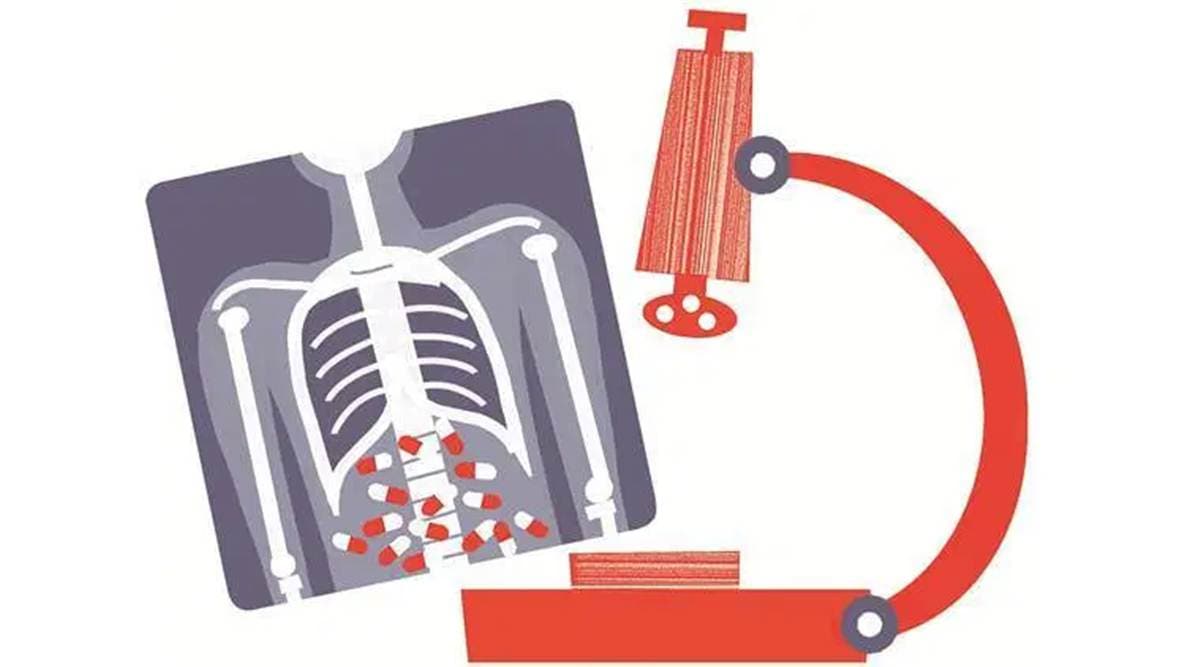 For the TB mitigation strategy to be effective, it is important to increase levels of awareness of people about the disease. (Representational)
For the TB mitigation strategy to be effective, it is important to increase levels of awareness of people about the disease. (Representational) While the Covid-19 pandemic has wreaked havoc on lives and health systems across the world, it has also forced governments globally to become more cognisant of the public health blueprints of their countries. In her budget speech for 2021-2022, Finance Minister Nirmala Sitharaman announced the government’s policy to bolster support for holistic health and well-being. The policy revealed a strong commitment to tackling infectious diseases by pledging to fund four new national virology institutes, nine new high-containment laboratories for studies on highly infectious pathogens, and a National Institute of One Health to coordinate research and surveillance on animal and human infections and several measures to control the spread of Covid. Unfortunately, it did not address other infectious diseases like tuberculosis that have taken a large toll on the country’s population in recent decades.
According to the WHO’s Global TB Report 2021, an 18 per cent decline in case notifications is perhaps the biggest indicator of the pandemic’s impact on global tuberculosis programmes. India reported a substantial drop in notifications — the country reported 18 lakh tuberculosis cases in 2020 compared to 24 lakh cases in 2019. The report observes that with a total estimated incidence of 25.9 lakh TB cases, India is home to a quarter of the global burden of the disease. Since 2016, India has been on a mission mode to eliminate TB by 2025, five years ahead of the global target. With a four-fold increase in the budget to tackle the disease and a patient-centric National Strategic Plan for TB elimination, India had taken enormous strides towards reaching its goal. However, the pandemic has caused massive disruptions since resources, both human and technical, were diverted to control the spread of SARS-CoV2.
Fear of Covid lockdowns and economic stress discouraged people from visiting medical facilities to get tested. This exacerbated the pre-existing health-seeking behaviour of people who, under normal circumstances too, would shy away from getting medical care. For the TB mitigation strategy to be effective, it is important to increase levels of awareness of people about the disease. It is also crucial to ensure that the people affected by the disease overcome social insecurities and access TB care and utilise the government’s TB programme. To this end, the Active Case Finding (ACF) drives organised by the National TB Elimination Programme merit mention. These drives, implemented for systematic screening of TB among vulnerable populations or regions since 2017, have helped in early case detection. Even during the pandemic, in 2020, approximately 17.9 crore people were screened, and 52,273 TB cases were identified, according to the India TB Report 2021.
While ACF drives have helped identify TB patients at the district/sub-district level, public participation and community ownership remain intrinsic to any sustainable strategy for TB elimination. It is time for a people’s movements for the elimination of TB. Elected representatives’ initiative and participation can certainly help to amplify the right messages about available care services, destigmatise the disease and encourage people to seek care. This could be achieved by supporting grassroots workers such as ASHAs, anganwadi workers and self-help groups who strive hard to sustain a responsive health system at the local level.
As a public representative, I have had the opportunity to work closely with several SHGs in Pune. In my experience, empowering these groups with accurate information and enhancing their ability to communicate effectively can transform how health programmes deliver at the grassroots level.
We will have to fill in the gap created by nearly one and a half years of Covid. While it remains essential to push for more finances and supportive policies at a national level, any tangible impact inevitably happens when the fundamentals of any movement are robust. In this case, the fundamentals are the people and community leaders. Collectively, we must keep alive this jan andolan against TB till the most vulnerable can secure themselves a safer future. Only then will we as a people achieve the ultimate objective of a “TB-mukt Bharat”.
The writer is a Rajya Sabha member from the NCP and member, advisory board, Global Coalition Against TB
- The Indian Express website has been rated GREEN for its credibility and trustworthiness by Newsguard, a global service that rates news sources for their journalistic standards.

